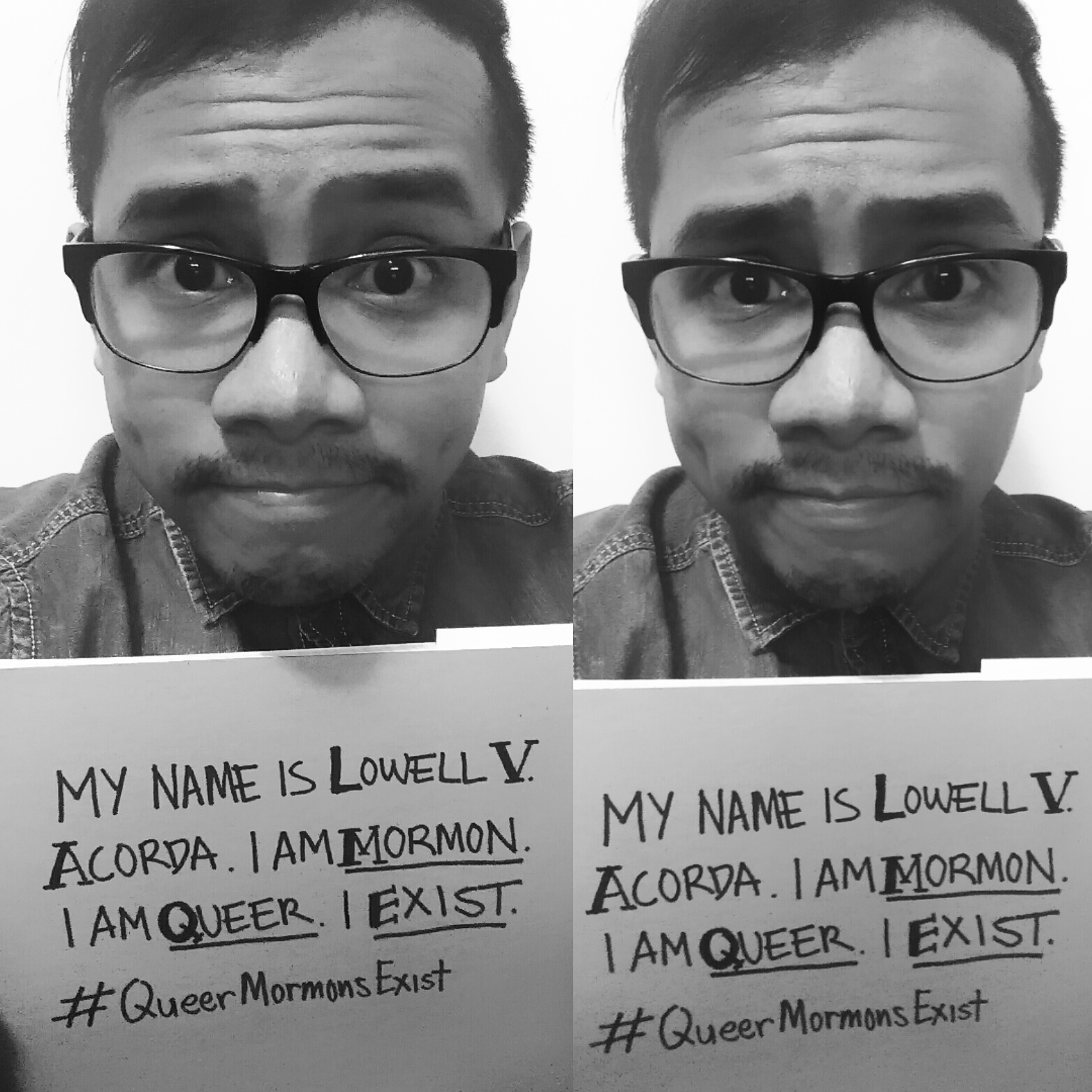Lowell Acorda demonstrates his need for acceptance within the LDS Church and the LGBTQ community.
Mormons in the LGBTQ community feel alienated after new rules in the LDS handbook ask their children to condemn the relationship.
In November the Church of Jesus Christ of Latter-Day Saints added a policy to the LDS handbook regarding same-sex relationship couples and their families.
The policy states children of same-sex couples cannot be baptized until the age of 18 and will only be baptized once they condemn the relationships of their parents to the church.
These positions by the church confused and deeply upset many, who feel the preachings of the faith are contradictory, especially Mormon Kim Siever.
“The Mormon Church has taken a socially conservative stance. As a result, they’ve dismissed the community. To me, it would seem they should want to embrace the LGBTQ community who are interested in the faith,” Siever said.
ADVERTISEMENTWith a daughter who no longer practices LDS faith and is part of the LGBTQ community, Siever fears the relationship he could have with his grandchildren is in jeopardy.
“She doesn’t participate in the church anymore, but there was always that potential. If that were the case, then that would affect our religious relationship with our grandchildren. They wouldn’t be able to participate in the sacraments of the LDS church,” said Siever.
Although leaving the faith before the new policy, Siever’s daughter was deeply affected by it.
“She identifies as atheist and has for several months prior to the policy coming out, but the policy has made her quite upset. The way she’s been treated in the church, and not because of her sexuality, she felt excluded and this perpetuates this feeling,” said Siever.
The church’s new statements on same-sex couples shook Siever to his core emotionally and had him question his own faith as well.
“It really affected me in a profound way. I was really torn up by [the policy]. The night it happened, seeing some of the things members of LDS were saying made me sick inside, it made me nauseous. I was struggling mentally and emotionally,” said Siever.
“I was having a faith crisis and debating whether to stay or go. Some people were supportive whether I decided to stay or not, but some were silent. It was as if they hadn’t paid attention to anything I had been saying.”
Siever has been a supporter of same-sex and marriage equality since it became legal in Canada 10 years ago, but seeing the influence the church can have on the LGBTQ community, he decided he needed to do more to show his support.
“Since that point people have viewed me differently, but I have become more radical in other beliefs and they might be dismissing me.”
Given the length of time marriage equality has been a part of Canada, Siever sees the recent addition of the policy as a political statement after the U.S. Supreme Court decision last year.
“It wasn’t an issue until it was mandated within the United States and now it’s political. Despite the fact more than half the Mormon population lives outside of the United States,” said Siever.
Siever couldn’t understand the policy and how parents providing a secure environment for their children and family could be seen as living in sin.
“Someone who is convicted of murder isn’t considered apostate, but someone who lives in a loving relationship and provides a stable home for children is considered apostate. It doesn’t make any sense,” said Siever.
Claiming they wrote the policy out of love for the parent/child relationship and family bonds, the message the church was sending confused LGBTQ Mormon Lowell Acorda.
How forgiveness can be granted to almost anyone and the hypocrisy of the church, was a view both LGBTQ Mormon Lowell Acorda and Siever shared.
“I would call out those who say it was a policy done in love. People who abuse their spouse or their children aren’t being condemned like the people who are homosexual and searching for a wholesome relationship,” said Acorda.
The LDS church’s firm stance on LGBTQ’s and their participation in Mormonism, to Acorda, has contaminated a moment for the church to show love and tolerance to everyone who wishes to practice the faith.
“What someone would typically take as a moment of education is tainted with personal opinions,” said Acorda. “They’ve gone as far as to say we don’t exist. To say there are no homosexuals in this church, for an apostle to discredit your existence really hits you below the belt.”
Why the LDS church waited until the U.S. Supreme Court’s ruling to draft a policy was lost on Acorda, but he attributes it to America’s relationship with the religion itself.
“Why did this happen when the church was only affected in the United States? It hasn’t affected the congregations in Canada or Europe. The LDS church is very America centric. The culture has strong American traditions,” said Acorda.
Worried about what the future holds, should Acorda choose to raise his own family within the church’s community, he fears one day the church will come knocking on his door carrying torches and pitchforks.
“To have this hope that I had to be somehow involved with the church, even if I still had my partner and future family has dissolved. It was really heart breaking. I see myself as a member of good standing until I pursue a relationship, in which case it’ll turn into a witch hunt,” Acorda said.
Even though Acorda worries about his future position in the church, the mindset it instills into its members has been affecting his family life for a long time.
“I understand their involvement in my life might discredit them and I fear a rift will be created within my family. We have a don’t ask, don’t tell policy,” said Acorda.
For now Siever and Acorda continue to practice their faith the way they see fit, waiting for the day the LDS church passes their final judgment upon them.



in all due respect, it seems like there are a number of slightly incorrect assumptions and things taken out of context by acorda and siever. i sympathize as much as i can from my personal experience as someone who is in some respects a bit of a black sheep in the church. i do know however, that this is God’s church.
we are all judged by the intents of our hearts, no matter what our challenges are or what our behaviours are on the outside. ultimately God knows if we tried our best to do what was right according to our knowledge of what was right.
Great article. It is hard to see people to suffer so needlessly. That policy is absolutely abhorrent. Kim and Lowell, if it comes to that I hope you can find peace outside of an organization that chooses to marginalize you and your loved ones. Love all and not hate, that’s the only way to live.